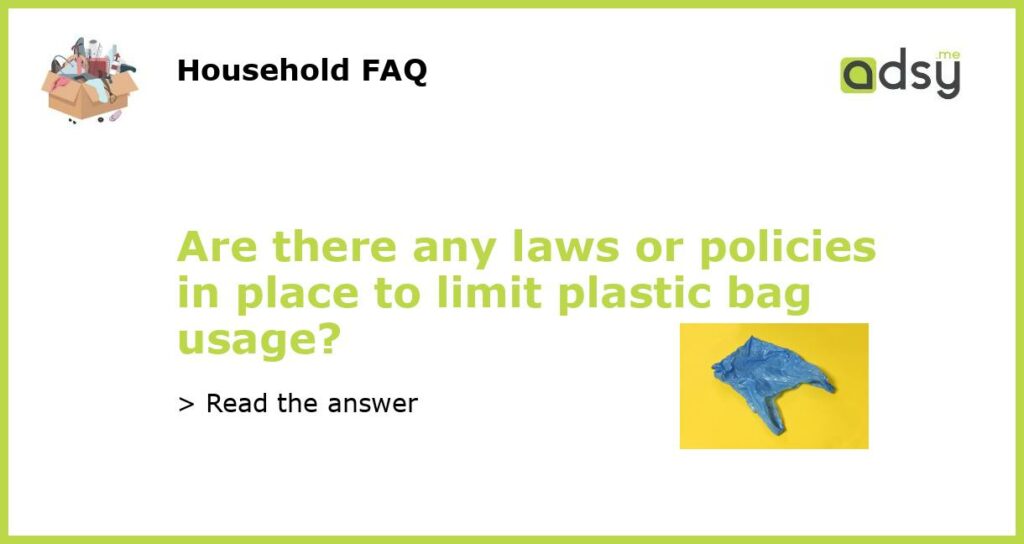Introduction
Plastic bags have become a very common sight in our daily lives. They are used for grocery shopping, packaging goods, and various other purposes. However, their widespread use has also caused environmental concerns, leading to the implementation of laws and policies to limit plastic bag usage. In this article, we will explore the existence and impact of such laws and policies at a national and international level.
National Laws and Regulations
Many countries have recognized the harmful effects of plastic bags on the environment and have taken steps to limit their use. For example, in 2002, Bangladesh became the first country to entirely ban plastic bags to tackle a severe problem of plastic pollution. Several other countries have followed suit, including Rwanda, which implemented a similar ban in 2008, and Kenya, which introduced a complete ban on plastic bags in 2017. These bans have been effective in reducing plastic bag usage and their impact on the environment.
International Agreements and Initiatives
In addition to national laws, there are also international agreements and initiatives aimed at limiting plastic bag usage. One such initiative is the United Nations Environment Program’s Clean Seas campaign, which aims to eliminate major sources of marine litter, including single-use plastic products like bags. The campaign encourages countries to take action to reduce their plastic waste and provides technical and financial support to implement effective solutions.
There are also several international agreements that address plastic bag usage. The Stockholm Convention on Persistent Organic Pollutants, for example, lists plastic waste as one of the substances of concern, and encourages nations to take measures to reduce its release into the environment. The Basel Convention on the Control of Transboundary Movements of Hazardous Wastes and Their Disposal also includes provisions to control the transboundary movement of plastic waste, including plastic bags.
Local Laws and Policies
In addition to national and international regulations, many cities and municipalities have implemented their own laws and policies to limit plastic bag usage. For example, in 2016, California became the first U.S. state to ban single-use plastic bags at large retail stores. Many other cities and states in the U.S., as well as other countries, have followed suit with their own bans or fees on plastic bags. These local laws have been effective in reducing plastic bag usage and promoting the use of reusable alternatives.
Impact and Challenges
The implementation of laws and policies to limit plastic bag usage has had a positive impact on the environment, reducing plastic pollution and waste. However, there are also challenges associated with these measures. One challenge is ensuring compliance and enforcement of the laws. Some countries and cities struggle with enforcing the bans and ensuring that businesses and consumers adhere to the regulations.
Another challenge is the availability and affordability of alternative options. While the bans on plastic bags promote the use of reusable bags, there can be a lack of access to affordable and convenient alternatives, especially in developing countries. This can result in the use of other types of single-use plastic bags or increased reliance on paper bags, which also have their own environmental impact.
In conclusion, there are indeed laws and policies in place to limit plastic bag usage at national, international, and local levels. These regulations have been effective in reducing plastic bag usage and their impact on the environment. However, challenges remain in terms of compliance, enforcement, and providing affordable alternatives. Continued efforts and initiatives are necessary to address these challenges and further reduce the use of plastic bags.






